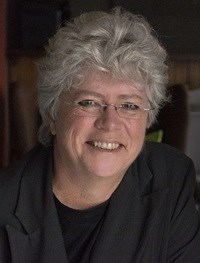
Top stories

Marketing & MediaWarner Bros. was “nice to have” but not at any price, says Netflix
Karabo Ledwaba 5 hours





More news




















Prof. Being Darelle van Greunen: Being in the ICT and Engineering industry, the depictions of women's success in the corporate, as well as academic world are misleading. Increasingly, women are bumping into a 'glass ceiling'. The barrier is so subtle that it is almost transparent. Women can see the high-level positions but very seldom reach the top. In specific sectors there is still a perception that women have an inability to handle a higher-level position and therefore they are prevented from advancing simply because they are women. There remains a gender imbalance in the workplace and in sectors that are traditional male dominated sectors. The labels, stereotypes and boxes are still there.
Van Greunen: I do not have one single role model as such. There are a number of people whom I respect and some who have set an example of what I like to think is good for mankind and not only for women. As life does not consist of one thing only, I also take a holistic view of those from whom I borrow and admire. One such person is Mahatma Gandhi one of the greatest leaders of all times. Then there are people who are less famous than the Ghandis of this world, but equally powerful in their influence. One such person is Frida Kahlo, the Mexican artist who is admired for her tenacity as an icon of female creativity.
I am also constantly grounded and humbled by the people that I interact with daily. When you are working in deep rural areas where people live close to nature, you are reminded of how insignificant mankind is in the bigger picture. This then also reminds me of Jane Goodall and her perspective on life. One of my favourite quotes by the well-known primatologist is, "Lasting change is a series of compromises. And compromise is all right, as long your values don't change." This is then also the outlook of my own mother, who remains a strong voice of reasoning in my own life.
Van Greunen: As women, our biggest challenge in the technology industry is to convince our male counterparts that we too can do the job and quite frequently, do the job even better. On the African continent, we still have to walk long roads to have women recognised for their skills and abilities. In many cultures, women still do not have a voice. Until we have not managed to give all women a voice, we will continue to face challenges.
Van Greunen: I think it is beneficial to have a month dedicated to women. However, I believe we should do more during this time to focus the attention on all the good things that women have innovated over time. The leadership roles they took on. The fact that so often behind one successful woman, stands another woman supporting her.
Van Greunen: As a female Professor in a male dominated sector, I am still a scarce entity. The number of women who have a PhD in the technology and engineering fields is still limited. For some reason, when people see your title as professor, they automatically assume it is a man. In this day, they are still surprised to see that a woman can be a professor in technology. I overcome the barriers by just ignoring the attitudes of people and to continuously work towards the goals I set for myself. Long hours and at times personal sacrifices, but tenacity and determination paid off.
Van Greunen: Never give up and do not allow people to tell you that as a woman you cannot do it. Go out and show them. After all, the proof of the pudding remains in the eating.
Van Greunen: Women of Africa have a voice. Do not allow history to dictate your course of action. Take control and act. We are African women innovating and creating for Africa in Africa.
Professor Darelle van Greunen is a multiple award winner. She has a multidisciplinary background, combining computer science, information systems, African languages, education, media studies and psychology. She holds a number of degrees with her PhD being in Computer Science. Her research focuses on using technology as an enabler in society but with a strong focus on how humans interact with technology. Her research is combined with real-life interventions in different communities of Africa. She is best known for her passion to transform low-income communities through the use of technology as an enabler and catalyst to respond to social issues.
